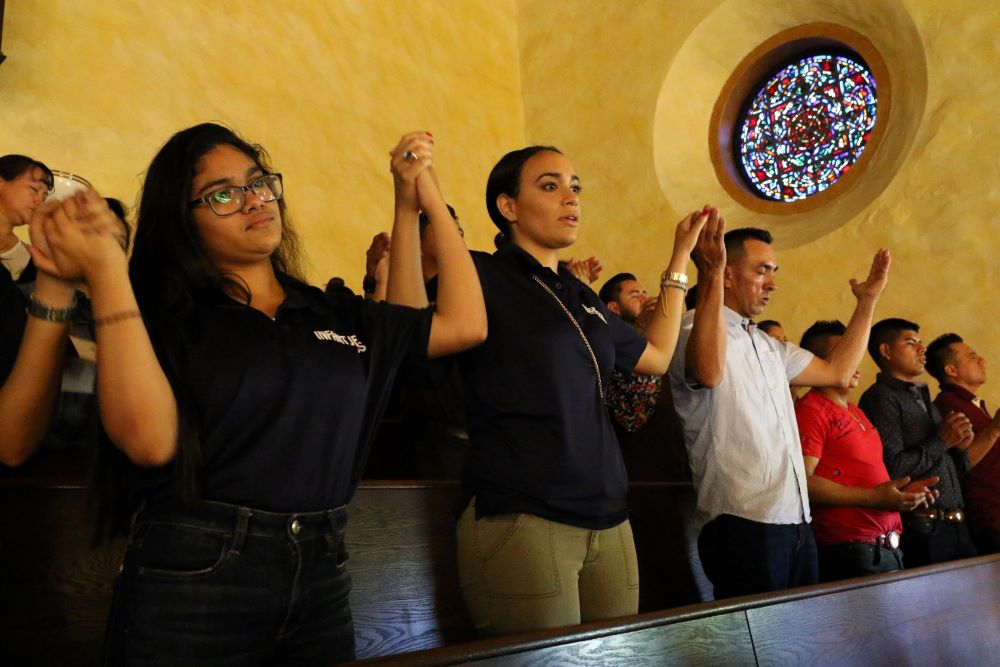
The number of U.S. Latinos who identify as Catholic is continuing to decline steadily, with only about 43% now affiliating with the faith tradition, according to a new report from the Pew Research Center released April 13.
Likewise, the percentage of religiously unaffiliated Latinos has risen dramatically, with 30% now saying they do not have a faith affiliation, according to the report.
Despite the decline, Catholics remain the largest religious group among Latinos in the United States, the report says. Latinos also remain about twice as likely as U.S. adults overall to identify as Catholic, and considerably less likely to be Protestant, according to the report.
The percentage of U.S. Hispanics who identify as Catholic declined from 67% in 2010 to 49% in 2018 and 43% in 2022, while the percentage of U.S. Latinos who identify as religiously unaffiliated increased from 10% in 2010 to 20% in 2018 and 30% in 2022, according to the report.
Since the 2000s, U.S. births rather than new immigration have driven U.S. Hispanic population growth. Forty-nine percent of U.S. Latinos ages 18-29 identify as religiously unaffiliated, while 30% identify as Catholic and 15% identify as Protestant.
While Catholic affiliation has declined among U.S. Latinos, the new survey found that the percentage of those who identify as evangelical Protestant and non-evangelical Protestant is the same as a decade ago — with 15% identifying as evangelical Protestants and 6% identifying as non-evangelical Protestants.
While 65% of U.S. Latinos were raised Catholic, only 43% are currently Catholic, according to the report, which also found 23% of U.S. Latinos are former Catholics and 1% are Catholic converts.
The gap between those raised Catholic and current Catholics is actually smaller for U.S. Latinos 18-29. Of those ages 18-29, 51% were raised Catholic, while 30% now identify as Catholic.
This gap between the percentage raised Catholic and the percentage who are currently Catholic grew among U.S. Latinos older than 50. Among those 65 and older, 80% were raised Catholic, while 54% say they are currently Catholic.
Spanish-dominant U.S. Latinos are more likely to be Catholic than those who are bilingual, the survey found. But bilingual Latinos are more likely to be Catholic than those who are English-dominant.
Speaking in tongues is an important part of charismatic Christianity and Pentecostal Christianity, which have become popular in Latin America. Among U.S. evangelical or born-again churchgoing Latinos, 57% said that their services at least sometimes include speaking in tongues.
Among Mass-attending U.S. Catholic Latinos, 40% say their services at least sometimes include speaking in tongues, compared to 24% of all U.S. Catholics who said the same in a previous Pew survey.
According to the new survey, U.S. Protestant Latinos are more likely than U.S Catholic Latinos to say religion is very important in their lives, to attend services at least once a week and to pray daily.
The Pew report is based on survey data from 7,647 noninstitutionalized U.S adults who were recruited through a national, random sampling of residential addresses, including 3,029 Hispanics, who responded between Aug. 1 and 14, 2022.